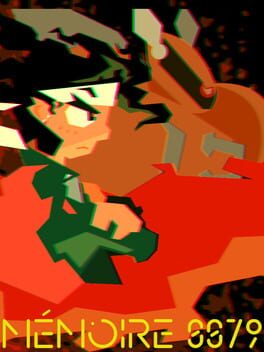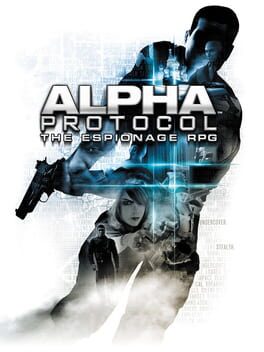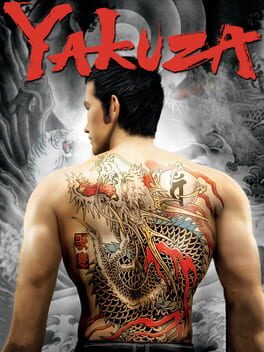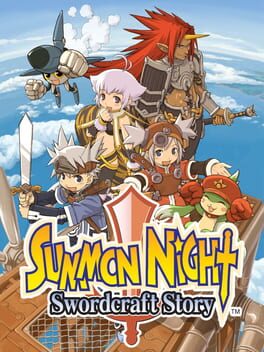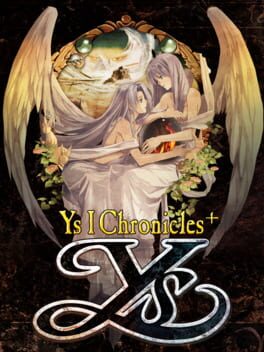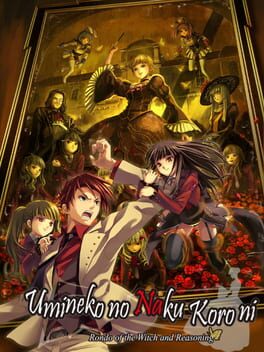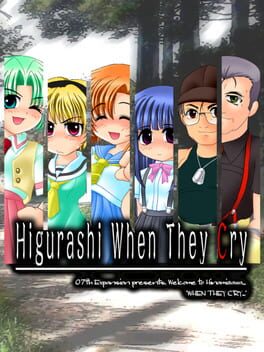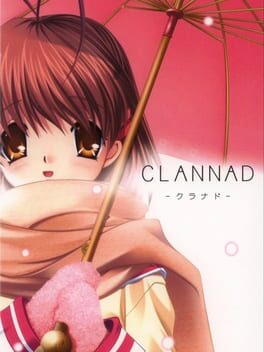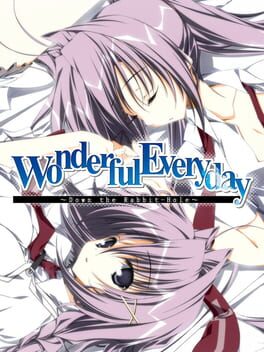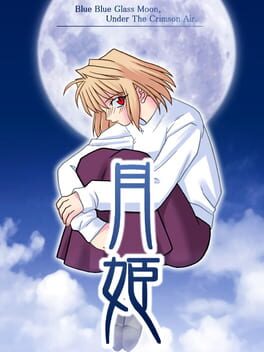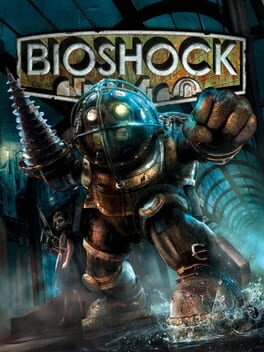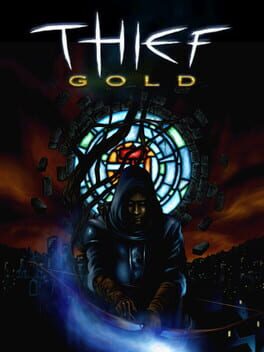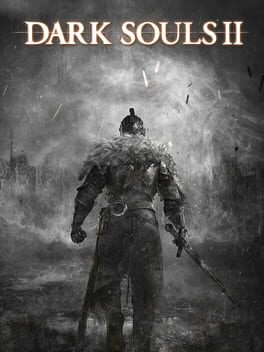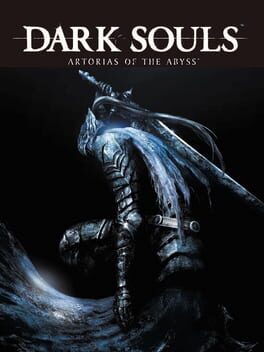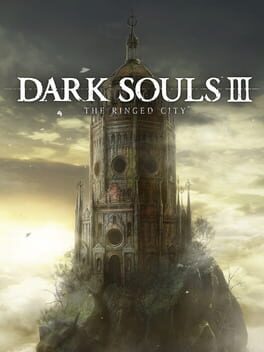Partialcarp
36 reviews liked by Partialcarp
Mémoire 0079
2023
As a narrative adventure game, Mémoire 0079 is quite an interesting concept. Login in as a player into a fictional terminal to uncover reports about a distant future and exploring both sides of a war. A narrative focused in on two major players during this fictional sci-fi conflict: Vega Hawthorne of the United Earth and Raya Sokolova of the Ceresian Republic. Both held up by their respective governments as great heroic figures, through propaganda and personal ideologies. It's all a novel idea, pulling your sympathies in multiple directions on whose story you might read first. Well, but here can we get into the biggest issue with the game, the fact that it's infact nothing more than a surface level novelty.
There is no real game to speak of here, just walls of unwieldy text to click through and mountains of hyperlinks that pull your attention away from reading what seems like it could be an engaging story. Just to be stoped dead in your tracks while reading in order to look up words and events you really have no context for and there for might not even care about right away. I know that is the idea and the game's own web page describes itself as "a unique narrative adventure game about exploring a wiki-like interface", but I fell like if you want to fully engage the reader into your world, it helps to have a clearer structure to the events being told. You can still have all the gimmicks of personal logs, redacted sections in government documents and military propaganda. Maybe have some real time email traffic or chats you can respond to popping up on the side as you browse the wiki. Having you engage with the world in a tangible way, and perhaps even being able to make a choice for what side your sympathies align more. All in all, the most important aspect would be reducing the amounts of hyperlinks. Even just including a separate glossary on the side to pull up would help. In my opinion, it's better to make the broad strokes of your Universe as basic and understandable as possible and then you can bombard your audience with the more complex stuff later. The Universe is still interesting, mind you, there is potential here, but it's the dialogue between characters where the game ultimately shits the bed.
Throughout many of the personal logs and transcripts present here, these two warring factions feel less like opposing cultures and more like drunk discord mods. It's the clearest evidence of to the fact that if you want to make a distinct fictional universe, you need to put in some effort in to establishing a culture and a way of language. Especially if the main point of your story is to contrast the two factions against each other. I don't think Captain Picard encountering the Borg for the first time and trying to contact the Federation about the immediate danger would have had nearly the same impact as it did, if they're back and forth dialogue mainly consisted of “Naaaaah”, “lol”, “lmao” or “can we talk about the fact that they suck shit”. Not quite as impactful I would say.
If I had to pull up one last positive at the end, it probably be the presentation. It's all presented quit nicely through the UI of an old school computer terminal, with atmospheric background tracks. Although I would have liked to have more tracks overall, having some pages be completely silent while the next one suddenly ear blast you with a loud background track was an odd experience. Overall this was a neat project, that needed about 5 more rewrites and revisions. It's free to play in your browser anyway, so there is no harm in checking it out and having a laugh at it atleast. Maybe the next one will be better, always possible.
There is no real game to speak of here, just walls of unwieldy text to click through and mountains of hyperlinks that pull your attention away from reading what seems like it could be an engaging story. Just to be stoped dead in your tracks while reading in order to look up words and events you really have no context for and there for might not even care about right away. I know that is the idea and the game's own web page describes itself as "a unique narrative adventure game about exploring a wiki-like interface", but I fell like if you want to fully engage the reader into your world, it helps to have a clearer structure to the events being told. You can still have all the gimmicks of personal logs, redacted sections in government documents and military propaganda. Maybe have some real time email traffic or chats you can respond to popping up on the side as you browse the wiki. Having you engage with the world in a tangible way, and perhaps even being able to make a choice for what side your sympathies align more. All in all, the most important aspect would be reducing the amounts of hyperlinks. Even just including a separate glossary on the side to pull up would help. In my opinion, it's better to make the broad strokes of your Universe as basic and understandable as possible and then you can bombard your audience with the more complex stuff later. The Universe is still interesting, mind you, there is potential here, but it's the dialogue between characters where the game ultimately shits the bed.
Throughout many of the personal logs and transcripts present here, these two warring factions feel less like opposing cultures and more like drunk discord mods. It's the clearest evidence of to the fact that if you want to make a distinct fictional universe, you need to put in some effort in to establishing a culture and a way of language. Especially if the main point of your story is to contrast the two factions against each other. I don't think Captain Picard encountering the Borg for the first time and trying to contact the Federation about the immediate danger would have had nearly the same impact as it did, if they're back and forth dialogue mainly consisted of “Naaaaah”, “lol”, “lmao” or “can we talk about the fact that they suck shit”. Not quite as impactful I would say.
If I had to pull up one last positive at the end, it probably be the presentation. It's all presented quit nicely through the UI of an old school computer terminal, with atmospheric background tracks. Although I would have liked to have more tracks overall, having some pages be completely silent while the next one suddenly ear blast you with a loud background track was an odd experience. Overall this was a neat project, that needed about 5 more rewrites and revisions. It's free to play in your browser anyway, so there is no harm in checking it out and having a laugh at it atleast. Maybe the next one will be better, always possible.
The Legend of Zelda
1986
Remarkably, the good majority of Zelda holds up in the current day. It's interesting to hear people call this a "guide game" in a negative lens because... that's always how it was marketed and sold to us. The manual that comes with the game not only expands quite a deal on the story and context of this first entry, but includes gorgeous artwork and maps - complete with walkthroughs for the first few dungeons - to get a new player started. This was indeed always meant to be an adventure, one the player would get their nose lost in manuals, handwritten notes and drawings, and of course not the least of which murmurings and tips passed between friends in the schoolyard and the fabled Nintendo hotline.
That said, the original Zelda experience isn't without flaw, for all of its adventure purist expression. I think Miyamoto and the team learned pretty quickly that an indicator for which bushes to burn, which boulders and walls to bomb, and stronger guidance for the sake of general gameplay flow were all in order by the time Link to the Past would roll around. The combat so desperately wants Link to have an arced swing of his sword, evidenced by how much combat relies on inter-tile maneuvering, but it's not quite there yet. Still a massive step in the right direction from the competitions' push-combat approach... much as I do like early Ys. What's here is still very solid, and a great deal of fun. I just replayed this with my best friend in an impromptu single session and it didn't drag at all. For as minimal and bare-bones as Zelda feels now, that adds to the unique charm and status it takes within its series and adventure games as a whole.
That said, the original Zelda experience isn't without flaw, for all of its adventure purist expression. I think Miyamoto and the team learned pretty quickly that an indicator for which bushes to burn, which boulders and walls to bomb, and stronger guidance for the sake of general gameplay flow were all in order by the time Link to the Past would roll around. The combat so desperately wants Link to have an arced swing of his sword, evidenced by how much combat relies on inter-tile maneuvering, but it's not quite there yet. Still a massive step in the right direction from the competitions' push-combat approach... much as I do like early Ys. What's here is still very solid, and a great deal of fun. I just replayed this with my best friend in an impromptu single session and it didn't drag at all. For as minimal and bare-bones as Zelda feels now, that adds to the unique charm and status it takes within its series and adventure games as a whole.
This review contains spoilers
i'm of two minds about Sekiro. at times it feels like a great game hiding inside a mediocre one, and sometimes it feels like a mediocre game hiding inside a great one. there are moments where it is a deeply electrifying experience, and there are times where it feels utterly indistinct from the stock AAA formula.
let's start with the good: the one-on-one swordplay in this game is a delight. on a very fundamental level, it's not too dissimilar from the Batman Arkham combat that took 2010s AAA game design by storm: you have dodges and parries that you use in response to specific diagetic and non-diagetic (glowing swords, markers over people's heads) tells, and maintaining a consistent rhythm of combat builds up a meter that you can use to defeat enemies in one hit. sekiro is much more difficult than it's contemporaries in this style in a way that may obscure this similarity, but it is very much there, and it works brilliantly. sekiro has some of the best one-on-one swordfights in the medium, battles of constant aggression where backing off for even a moment to heal gives your opponent time to recover their posture, where a single mistake on your part changes the game, and where perfection is tantalizingly within grasp once you adjust to the game's rhythms. designers Masaru Yamamura and Yuki Fukuda and their design team - along with the game's fantastic audio and animations - are to be applauded for making a game that is experientally not a thousand times removed from a Batman Arkham/Punch-Out!! hybrid feel utterly fresh and unique. the game's combat admittedly loses something when you aren't up against human opponents: the all-too-frequent times you are up against animals strip away the core loop of perfect parries and well-timed dodges into a much less elegant game of hammering the dodge button to get away from unparseable flails of limbs, but even then it rarely devolves so much that the core enjoyment of the combat is no longer present. it's only once you slink away from a duel, back into the shadows, that the flaws begin to show in the game's technique.
the stealth...exists. i hesitate to call it bad but it's certainly not remarkable: if you've played any AAA open world game made in the past few years you know what you're getting here: hiding in tall grass or on branches and rooftops from patrolling enemies that you can kill in one hit by sneaking up behind them, and some distraction items and moves that you'll rarely if ever use because it's much more effective to just stab them in the back. stealth rarely feels like it is the cornerstone of an engaging encounter - only the sniper miniboss in Ashina Depths really felt like something that I had to make careful and considered use of stealth in order to make it through, and that may just be because I got there far too early - and usually either falls into thinning out a couple of enemies before a fight, or slowly picking them off one-by-one Arkham style. the one interesting thing Sekiro brings to the table is that you can take off one of a bosses (usually two) health bars by getting the drop on them, but this has a knock-on effect for the design of those bosses where if you don't get a drop on them, you just have to fight them twice, with only major bosses having different moves and patterns for different phases. technically speaking this rewards the stealth but I'm very tired of the go-to reward for this kind of AAA game being the ability to skip repetitious content. ultimately, like a modern Assassin's Creed or Horizon: Zero Dawn the stealth here would be unable to carry a full game, and just barely meets the boundaries of acceptability for what increasingly seems like an element these games simply must have.
this feeling of weary obligation manifests narratively as well. thematically, I dig what it is doing. this story about how clinging to life after one's time has passed produces a sickness of the soul that mutilates the self and destroys the world around you to sustain yourself is often resonant and occasionally powerful, but it's the moment-to-moment writing that really lets it down: characters are routinely flat and one-dimensional (the character of Owl is notably ill-served, being absent for almost the entire game before making a bizarre cartoonish turn to evil), the game is too eager to show you it's mysteries to really make the environmental storytelling sing (the monastery is theoretically my favorite narrative arc here but because The Deal is unveiled almost immediately there's no real escalation of information: you learn almost immediately that these guys made themselves into undying monsters through these freaky worms and there's precious little left to discover in the course of your adventure), and the game's refreshingly restrained storytelling for a big AAA game ultimately dooms this narrative to fade from the mind as quickly as it passes through the body. perhaps this could have been solved with more dialogue, but given that attempting to explore the narrative further "rewards" the player with a "true" ending that is total MCU sequel hook rubbish compared to the poignant normal endings, I'm not sure this is a quick fix. I do think the storytelling here is ultimately too slight, as the lack of space given to characters like Genichiro or places like Ashina to be understood as characters who have a coherent belief system or culture or context they are clinging to robs the game of a lot of the resonance it could potentially bring out by boiling things down to the point that the metaphors struggle to be gleamed through the Proper Nouns, but I think the wider problem is this game is far, far too long.
again, this is something sekiro very much has in common with it's contemporaries in the AAA space. Sekiro took me just over 30 hours to finish - with at least 4 hours dedicated to Final Boss Attempts alone because Good God - and I think you could have halved that and it would have twice the impact. i'm not really interested in speculating on what a hypothetical half-long Sekiro would look like, or Sek if you will, but certainly the game as it is empties it's bag of shinobi tricks (generously) about two thirds before the end, and relies on quite a few palette swapped enemies and bosses (it is a crime that the Chained Ogre is in here at all, let alone twice) as well as some truly sloppy designs (Demon of Hatred, Headless Ape) that don't gel at all with the experience the game is aiming for. somewhere in the imagination there exists a 12-15 hour Sekiro that excises the bosses that Just Don't Work, and focuses on the supremely polished, rock-hard core of the game that is consistently electrifying, but instead we have this bloated, confused, game that gets messier the more you step away from that ironclad heart.
inevitably, I am brought back to the question that dominates all my thoughts about sekiro: why? why is Sekiro like this? why did it feel the need to be 30 hours long? most linear action games without Open Worlds tend to clock in at either half of or a third of that length, so why does this have the length of an RPG? speaking of RPGs, why are the countless vestigial elements of currency, upgrades, that do little to enhance the core design here as well? why is this game riddled with unnecessary elements that either do not help it or actively undermine it? i'd almost say that it feels trapped in the poisonous swamp of some other, predecessor franchise from which many of these vestigial design elements originate from, the fanbase of which would expect a game with certain features and considerations and of a certain length, a fandom that would give tremendous benefit to this game by only viewing it through the narrow lens of the other games in this series rather than the wider industry design trends that it is clearly in conversation with, and that Sekiro: Shadows Die Twice ultimately wounded itself in order to accommodate a formula set down by these prior games that the developers are tragically wedded to despite said formula not truly fitting with the core design of this fundamentally distinct experience...but I couldn't possibly think of what that might be. i'm pretty sure from software didn't develop The Surge, after all.
perhaps we should count our blessings: at least it didn't try to infect itself with an Open World.
let's start with the good: the one-on-one swordplay in this game is a delight. on a very fundamental level, it's not too dissimilar from the Batman Arkham combat that took 2010s AAA game design by storm: you have dodges and parries that you use in response to specific diagetic and non-diagetic (glowing swords, markers over people's heads) tells, and maintaining a consistent rhythm of combat builds up a meter that you can use to defeat enemies in one hit. sekiro is much more difficult than it's contemporaries in this style in a way that may obscure this similarity, but it is very much there, and it works brilliantly. sekiro has some of the best one-on-one swordfights in the medium, battles of constant aggression where backing off for even a moment to heal gives your opponent time to recover their posture, where a single mistake on your part changes the game, and where perfection is tantalizingly within grasp once you adjust to the game's rhythms. designers Masaru Yamamura and Yuki Fukuda and their design team - along with the game's fantastic audio and animations - are to be applauded for making a game that is experientally not a thousand times removed from a Batman Arkham/Punch-Out!! hybrid feel utterly fresh and unique. the game's combat admittedly loses something when you aren't up against human opponents: the all-too-frequent times you are up against animals strip away the core loop of perfect parries and well-timed dodges into a much less elegant game of hammering the dodge button to get away from unparseable flails of limbs, but even then it rarely devolves so much that the core enjoyment of the combat is no longer present. it's only once you slink away from a duel, back into the shadows, that the flaws begin to show in the game's technique.
the stealth...exists. i hesitate to call it bad but it's certainly not remarkable: if you've played any AAA open world game made in the past few years you know what you're getting here: hiding in tall grass or on branches and rooftops from patrolling enemies that you can kill in one hit by sneaking up behind them, and some distraction items and moves that you'll rarely if ever use because it's much more effective to just stab them in the back. stealth rarely feels like it is the cornerstone of an engaging encounter - only the sniper miniboss in Ashina Depths really felt like something that I had to make careful and considered use of stealth in order to make it through, and that may just be because I got there far too early - and usually either falls into thinning out a couple of enemies before a fight, or slowly picking them off one-by-one Arkham style. the one interesting thing Sekiro brings to the table is that you can take off one of a bosses (usually two) health bars by getting the drop on them, but this has a knock-on effect for the design of those bosses where if you don't get a drop on them, you just have to fight them twice, with only major bosses having different moves and patterns for different phases. technically speaking this rewards the stealth but I'm very tired of the go-to reward for this kind of AAA game being the ability to skip repetitious content. ultimately, like a modern Assassin's Creed or Horizon: Zero Dawn the stealth here would be unable to carry a full game, and just barely meets the boundaries of acceptability for what increasingly seems like an element these games simply must have.
this feeling of weary obligation manifests narratively as well. thematically, I dig what it is doing. this story about how clinging to life after one's time has passed produces a sickness of the soul that mutilates the self and destroys the world around you to sustain yourself is often resonant and occasionally powerful, but it's the moment-to-moment writing that really lets it down: characters are routinely flat and one-dimensional (the character of Owl is notably ill-served, being absent for almost the entire game before making a bizarre cartoonish turn to evil), the game is too eager to show you it's mysteries to really make the environmental storytelling sing (the monastery is theoretically my favorite narrative arc here but because The Deal is unveiled almost immediately there's no real escalation of information: you learn almost immediately that these guys made themselves into undying monsters through these freaky worms and there's precious little left to discover in the course of your adventure), and the game's refreshingly restrained storytelling for a big AAA game ultimately dooms this narrative to fade from the mind as quickly as it passes through the body. perhaps this could have been solved with more dialogue, but given that attempting to explore the narrative further "rewards" the player with a "true" ending that is total MCU sequel hook rubbish compared to the poignant normal endings, I'm not sure this is a quick fix. I do think the storytelling here is ultimately too slight, as the lack of space given to characters like Genichiro or places like Ashina to be understood as characters who have a coherent belief system or culture or context they are clinging to robs the game of a lot of the resonance it could potentially bring out by boiling things down to the point that the metaphors struggle to be gleamed through the Proper Nouns, but I think the wider problem is this game is far, far too long.
again, this is something sekiro very much has in common with it's contemporaries in the AAA space. Sekiro took me just over 30 hours to finish - with at least 4 hours dedicated to Final Boss Attempts alone because Good God - and I think you could have halved that and it would have twice the impact. i'm not really interested in speculating on what a hypothetical half-long Sekiro would look like, or Sek if you will, but certainly the game as it is empties it's bag of shinobi tricks (generously) about two thirds before the end, and relies on quite a few palette swapped enemies and bosses (it is a crime that the Chained Ogre is in here at all, let alone twice) as well as some truly sloppy designs (Demon of Hatred, Headless Ape) that don't gel at all with the experience the game is aiming for. somewhere in the imagination there exists a 12-15 hour Sekiro that excises the bosses that Just Don't Work, and focuses on the supremely polished, rock-hard core of the game that is consistently electrifying, but instead we have this bloated, confused, game that gets messier the more you step away from that ironclad heart.
inevitably, I am brought back to the question that dominates all my thoughts about sekiro: why? why is Sekiro like this? why did it feel the need to be 30 hours long? most linear action games without Open Worlds tend to clock in at either half of or a third of that length, so why does this have the length of an RPG? speaking of RPGs, why are the countless vestigial elements of currency, upgrades, that do little to enhance the core design here as well? why is this game riddled with unnecessary elements that either do not help it or actively undermine it? i'd almost say that it feels trapped in the poisonous swamp of some other, predecessor franchise from which many of these vestigial design elements originate from, the fanbase of which would expect a game with certain features and considerations and of a certain length, a fandom that would give tremendous benefit to this game by only viewing it through the narrow lens of the other games in this series rather than the wider industry design trends that it is clearly in conversation with, and that Sekiro: Shadows Die Twice ultimately wounded itself in order to accommodate a formula set down by these prior games that the developers are tragically wedded to despite said formula not truly fitting with the core design of this fundamentally distinct experience...but I couldn't possibly think of what that might be. i'm pretty sure from software didn't develop The Surge, after all.
perhaps we should count our blessings: at least it didn't try to infect itself with an Open World.
It’s okay when FromSoft does it.
Sekiro is guilty of everything that its staunchest defenders attack other games for. An unforgivably bad camera, bosses with surprise second phases, dreadfully simple and overpowered parrying, a near-complete lack of depth both artistically and mechanically, and a thematic retread of what the studio has been doing for fifteen years now all culminates to create something that can peak at the heights of interesting but mostly just lingers in the trenches of bland.
I knew that I wasn’t going to like Sekiro about an hour into it, but I also knew that it would be incredibly easy for someone to point out that I'm a quitter and say that I just didn’t like it because I was bad at the game. You get that a lot, with FromSoft’s titles: the implication being that the difficulty is the sole reason why anyone could ever dislike it. Set aside the red-headed stepchildren that are titles like Dark Souls II and Dark Souls III, where the premier Soulsheads are often pretty harsh on them, and look instead to the darlings like Bloodborne, and Elden Ring, and Sekiro. There are a certain amount of criticisms that you’re allowed to make — farming for blood vials or spirit emblems is boring, certain builds or weapons are imbalanced compared to others — but start pointing out flaws in the underlying systems themselves, and watch the wagons get circled as you’re told that you just need to git gud to appreciate them. I’ll outline what I disliked about the game itself in a bit, but all of this preamble is required to explain why I felt so compelled to finish Sekiro, in the hopes that it’d allow me to speak with some degree of authority.
I have to wonder if Hidetaka Miyazaki ever feels like Victor Frankenstein looking at the monster he's created. The ethos of the earliest Souls games were largely about strangers coming together to overcome the challenges imposed by the brutal and uncaring world they inhabited. Miyazaki famously said that he was inspired by an icy road on a hill that he needed a stranger's help to get over, and that he himself also helped a stranger get over; it was "a connection of mutual assistance between transient people", he said, because he couldn't stick around to thank them or else he'd get stuck again. This laid the foundations not just for the jolly co-operation summons of the original Dark Souls, but certainly reflected players on a more meta level, as well. We're all transient people to one another online, and we'll talk about these games for tips and guides and then dip out to take on the challenges with new information, often to never hear from the other players again. We get what we can and give what we're able.
Yet there's been an inarguable change, I feel, in the way that fans of the newest games talk about them. The seeds were certainly first sown with the whole "PREPARE TO DIE" garbage from the western Dark Souls marketing campaign, but there's been a marked shift in the way that people discuss these games. Complain that it's too hard, and you'll now immediately be met with derision instead of advice: well, you're just bad, you need to git gud, you just don't get it. God help you if you decide to drop the game because you're not having fun. There's no faster way to prove that you're a casual who hasn't earned the right to talk about it. Sekiro discussion in particular is especially noxious, with the community that exists today largely believing that anyone who has any complaints whatsoever is just mad because bad. Even if you beat the game, complaining about it is unjustified because you're actually still bad. If you were good, you would have liked it. Your complaints are because you're bad, thus they're invalid; any praise must then be because you're good, and thus valid. I complained about the shitty camera to a friend and he immediately shot back that it was my fault for being near a wall, and that it's actually intended behavior for it to fuck up near terrain because it'll push clever players to the middle of rooms where they'll be safer. This is the level of discourse we're operating at here. A decade and a half of making these third-person action-adventure games and they still can't fix the fucking cameras, but it's actually because they're playing 4D chess against the player. Can you imagine anything else getting this much leniency?
The camera is really the thing I want to hammer home as the worst element here, because it alone has killed me more than any other enemy in the game. I don’t know how FromSoft still haven’t figured this out. I intentionally sped through most of the game, skipping a lot of the optional content primarily just because I wanted to roll credits, and even most of the mandatory bosses introduced new problems with the camera. Guardian Ape would throw me into a wall that the camera couldn’t phase through, which meant that it tried to go for a birds-eye view and got me killed because I couldn’t see what was happening in time to block the follow-up; Summoner Monk similarly backed me into a wall and brought us both so close to the camera that our models turned invisible and I had to guess what the pattern was, effectively with my eyes closed; Sword Saint Isshin’s Phase 2 jumping attack would break the lock-on whenever I dodged under it, because the camera couldn’t keep up with where he was going. Mini-bosses like the Lone Shadow Longswordsman and the Lone Shadow Vilehand would similarly eat the camera with some of their dashing moves, and bounding off the head of the latter after dodging his sweep caused the camera to get stuck in the ceiling so hard that it started flashing Electric Soldier Porygon at me for a few seconds until it freed itself. It’s so blatantly wrong that I’m astonished both that it made it to production in the state that it’s in and that it isn’t a complete dealbreaker for significantly more people than it is.
I mentioned to another friend that I was having some trouble with Owl and that I was going to call it quits for the night there, and he excitedly mentioned that Owl had his favorite boss theme in the game. It was at this exact moment that I realized that I couldn’t actually recall a single track from the entire ten or so hours I had played up to that point. Even after rolling credits, I still don’t remember anything aside from the fact that I thought Divine Dragon had a cool theme. Music is constantly playing over every sequence of the game, ambient tracks and combat tracks alike; if you aggro an enemy, kill them, and then immediately aggro another, the combat track will start, fade out, and then start from the beginning again. Moving through an area to quickly cut down enemies who don’t alert the others when they aggro can make the combat track start itself over what I managed to get about five times in a row. It’s kind of funny in how sloppy it is.
The narrative is dreck, of course, and I doubt anyone was expecting much different. It’s the same story FromSoft has been telling for years now — unnatural life and resurrection, it’s all cyclical, you can choose to either break the cycle or keep it going, blah blah blah — with the added twist of “honor culture is actually dishonorable”, which has been massively oversaturated for longer than anyone reading this has been alive, and Sekiro has absolutely nothing interesting to add to the conversation. It’s certainly present. Owl shows up after seemingly dying, decides to be evil, actually dies unceremoniously, and the game just kind of moves along without really being interested in how or why any of that happened. I’ve seen praise for the story, and I can’t honestly believe that anyone is cheering this on. This is the fourth time FromSoft has shown that time is a flat circle in class, and the irony of how they keep doing it over and over again is really kind of giving me a kick as I type it out. You certainly can’t say they don’t believe in it.
Souls combat was never mechanically deep, but made up for it predominately just by giving you a lot of options. Sekiro throws this out in favor of exclusively allowing the player to play as a squishy, dex-based katana-wielder who dies in two hits on a good day and has to perfect parry the world or be crushed beneath it. I respect, in a way, the sheer commitment to this singular playstyle, but I also don’t think there’s any depth here to actually make me want to play this over any other similar action game. You get a parry and you get some basic sword swings, and if you’re a really good boy, you get to do Ichimonji Double. The actual parrying itself is ridiculously forgiving, and you’ll just end up psyching yourself out if you read online that spamming it will reduce your parry window to about seven frames; it’s active for so long and you’re actionable again so quickly after you use it that you’re in no real danger so long as you just keep hammering away at L1 fast enough. The fact that this got a port for the Stadia — with its inherent input lag that you can count in geologic time — should indicate how core these so-called “strict reaction times” actually are. What you’re left with once you get past that mental barrier is a game where you hit R1 until orange sparks fly, hit L1 until orange sparks stop flying, and then repeat the process from the start. When the kanji for danger occasionally appears, you get to hit either the jump button or the dash button. It is fucking boring. I managed to no-hit all three phases of Isshin not because I had downloaded him and completely figured out a perfect counter for every single one of his combos, but because his AI broke and he kept spamming the thrust attack in Phase 2 and the lightning sweep in Phase 3. I was getting rolled before that, because he was actually using his entire arsenal. I didn’t outskill him, I just got lucky that he kept picking the exact same attack over and over again. It’s like I got double-perfected by a world-class Zangief player and then in game two he just sat in neutral and spammed SPD. Sure, I’ll take the win, but it’s not because I earned it. I didn’t win, he just lost. Sekiro occupies an incredibly awkward middle ground between something slow and simple like Dark Souls and something fast and complex like Devil May Cry or Bayonetta. The game is instead fast and simple, and I can’t think of anything that is less for me.
Speaking of, I think FromSoft has indicated with their last few releases that they’re no longer interested in catering to players like me. That’s fine. I say this with my teeth gritted and steam coming out of my ears, but, really, it is fine. They’ve clearly found a new audience who loves them dearly, and every new game they put out sells millions of copies and sweeps the Game of the Year awards from every publication giving them out. This beat Death Stranding and Resident Evil 2 at The Game Awards! It’s the fifth highest-rated game on Backloggd of all time! It’s sold over ten million copies as of September of this year! Clearly I’m the odd man out, here. What use is it even to complain? What reason would they have to listen?
I’ve been getting this sort-of old man doom sense lately — not just for game discussion, mind, but for a lot of things — about how saying what you feel about something doesn’t actually accomplish anything if you’re not in a position of power to change it. It’s got a purpose to just let others know how you feel about any given topic, but what does it actually do? If I find a group of like-minded individuals who think I nailed it with this review and agree that FromSoft ought to return to the good old days where they made shitty, clunky games that launched blatantly unfinished, what does that accomplish? If a group of Sekiro fans come in and dunk on me for just not understanding the game, what does that accomplish? I put myself through the ringer beating a twenty hour-long game that I hated, and for what? So that I’d be more credible when I said it was a pile of shit? What does that accomplish, then, when someone comes in and says that beating the game doesn’t mean anything and I’m still bad and that’s the only reason I hated it? Without anyone involved actually being in a position to change anything, what use is discussing it at all?
A large part of what bothers me is that I don't feel I've really gotten anything I value from my time with Sekiro. It's not just because of the difficulty; I do plenty of difficult things, play plenty of difficult games, and it's all given me something I value. Every piece I write makes me feel like I'm a little bit better at writing, and it helps me appreciate the writing of others more. Every fighting game I play tends to have wildly differing mechanics between them, but the fundamentals of squaring off against another player are transferable. Every song I compose makes me feel like I've got a deeper understanding of music. What I get from playing Sekiro is that I'm now better at Sekiro, which is a game I have no desire to ever touch again. There's hardly anything that plays quite like this — which is a massive point of support for those who love it — so I may as well have gotten nothing for all my time spent. There's nothing wrong with what I'll affectionately call "junk media", where there's no value to the piece besides what you feel in the exact moments where you're actively experiencing it, but you'd hope that what you feel is a sense of fun or reward. I felt neither from Sekiro. I thought it was boring, and it didn't give me anything I value. I could have gone to work and felt equally bored and unfulfilled, but at least work pays me.
It’s telling that the parts that I thought were most interesting — the Divine Dragon, the Armored Knight — are the parts that either go completely overlooked or disparaged by the broader fanbase. There’s a clear disconnect between me, this game, and everyone else. People all over the place online said to keep playing until the combat clicks, and that’s when you start having fun. I felt the combat click, and I felt bored. People said to play until Genichiro before you say you don’t like it, and I beat Genichiro and was still bored. People said you can’t call the game bad if you haven’t beaten it, and I have, and I still think it’s bad. Do I have the right to dislike it yet, or is there still something that I’ve missed?
Seeing a monkey in a conical hat firing a rifle was almost enough for me to justify giving this five stars.
Sekiro is guilty of everything that its staunchest defenders attack other games for. An unforgivably bad camera, bosses with surprise second phases, dreadfully simple and overpowered parrying, a near-complete lack of depth both artistically and mechanically, and a thematic retread of what the studio has been doing for fifteen years now all culminates to create something that can peak at the heights of interesting but mostly just lingers in the trenches of bland.
I knew that I wasn’t going to like Sekiro about an hour into it, but I also knew that it would be incredibly easy for someone to point out that I'm a quitter and say that I just didn’t like it because I was bad at the game. You get that a lot, with FromSoft’s titles: the implication being that the difficulty is the sole reason why anyone could ever dislike it. Set aside the red-headed stepchildren that are titles like Dark Souls II and Dark Souls III, where the premier Soulsheads are often pretty harsh on them, and look instead to the darlings like Bloodborne, and Elden Ring, and Sekiro. There are a certain amount of criticisms that you’re allowed to make — farming for blood vials or spirit emblems is boring, certain builds or weapons are imbalanced compared to others — but start pointing out flaws in the underlying systems themselves, and watch the wagons get circled as you’re told that you just need to git gud to appreciate them. I’ll outline what I disliked about the game itself in a bit, but all of this preamble is required to explain why I felt so compelled to finish Sekiro, in the hopes that it’d allow me to speak with some degree of authority.
I have to wonder if Hidetaka Miyazaki ever feels like Victor Frankenstein looking at the monster he's created. The ethos of the earliest Souls games were largely about strangers coming together to overcome the challenges imposed by the brutal and uncaring world they inhabited. Miyazaki famously said that he was inspired by an icy road on a hill that he needed a stranger's help to get over, and that he himself also helped a stranger get over; it was "a connection of mutual assistance between transient people", he said, because he couldn't stick around to thank them or else he'd get stuck again. This laid the foundations not just for the jolly co-operation summons of the original Dark Souls, but certainly reflected players on a more meta level, as well. We're all transient people to one another online, and we'll talk about these games for tips and guides and then dip out to take on the challenges with new information, often to never hear from the other players again. We get what we can and give what we're able.
Yet there's been an inarguable change, I feel, in the way that fans of the newest games talk about them. The seeds were certainly first sown with the whole "PREPARE TO DIE" garbage from the western Dark Souls marketing campaign, but there's been a marked shift in the way that people discuss these games. Complain that it's too hard, and you'll now immediately be met with derision instead of advice: well, you're just bad, you need to git gud, you just don't get it. God help you if you decide to drop the game because you're not having fun. There's no faster way to prove that you're a casual who hasn't earned the right to talk about it. Sekiro discussion in particular is especially noxious, with the community that exists today largely believing that anyone who has any complaints whatsoever is just mad because bad. Even if you beat the game, complaining about it is unjustified because you're actually still bad. If you were good, you would have liked it. Your complaints are because you're bad, thus they're invalid; any praise must then be because you're good, and thus valid. I complained about the shitty camera to a friend and he immediately shot back that it was my fault for being near a wall, and that it's actually intended behavior for it to fuck up near terrain because it'll push clever players to the middle of rooms where they'll be safer. This is the level of discourse we're operating at here. A decade and a half of making these third-person action-adventure games and they still can't fix the fucking cameras, but it's actually because they're playing 4D chess against the player. Can you imagine anything else getting this much leniency?
The camera is really the thing I want to hammer home as the worst element here, because it alone has killed me more than any other enemy in the game. I don’t know how FromSoft still haven’t figured this out. I intentionally sped through most of the game, skipping a lot of the optional content primarily just because I wanted to roll credits, and even most of the mandatory bosses introduced new problems with the camera. Guardian Ape would throw me into a wall that the camera couldn’t phase through, which meant that it tried to go for a birds-eye view and got me killed because I couldn’t see what was happening in time to block the follow-up; Summoner Monk similarly backed me into a wall and brought us both so close to the camera that our models turned invisible and I had to guess what the pattern was, effectively with my eyes closed; Sword Saint Isshin’s Phase 2 jumping attack would break the lock-on whenever I dodged under it, because the camera couldn’t keep up with where he was going. Mini-bosses like the Lone Shadow Longswordsman and the Lone Shadow Vilehand would similarly eat the camera with some of their dashing moves, and bounding off the head of the latter after dodging his sweep caused the camera to get stuck in the ceiling so hard that it started flashing Electric Soldier Porygon at me for a few seconds until it freed itself. It’s so blatantly wrong that I’m astonished both that it made it to production in the state that it’s in and that it isn’t a complete dealbreaker for significantly more people than it is.
I mentioned to another friend that I was having some trouble with Owl and that I was going to call it quits for the night there, and he excitedly mentioned that Owl had his favorite boss theme in the game. It was at this exact moment that I realized that I couldn’t actually recall a single track from the entire ten or so hours I had played up to that point. Even after rolling credits, I still don’t remember anything aside from the fact that I thought Divine Dragon had a cool theme. Music is constantly playing over every sequence of the game, ambient tracks and combat tracks alike; if you aggro an enemy, kill them, and then immediately aggro another, the combat track will start, fade out, and then start from the beginning again. Moving through an area to quickly cut down enemies who don’t alert the others when they aggro can make the combat track start itself over what I managed to get about five times in a row. It’s kind of funny in how sloppy it is.
The narrative is dreck, of course, and I doubt anyone was expecting much different. It’s the same story FromSoft has been telling for years now — unnatural life and resurrection, it’s all cyclical, you can choose to either break the cycle or keep it going, blah blah blah — with the added twist of “honor culture is actually dishonorable”, which has been massively oversaturated for longer than anyone reading this has been alive, and Sekiro has absolutely nothing interesting to add to the conversation. It’s certainly present. Owl shows up after seemingly dying, decides to be evil, actually dies unceremoniously, and the game just kind of moves along without really being interested in how or why any of that happened. I’ve seen praise for the story, and I can’t honestly believe that anyone is cheering this on. This is the fourth time FromSoft has shown that time is a flat circle in class, and the irony of how they keep doing it over and over again is really kind of giving me a kick as I type it out. You certainly can’t say they don’t believe in it.
Souls combat was never mechanically deep, but made up for it predominately just by giving you a lot of options. Sekiro throws this out in favor of exclusively allowing the player to play as a squishy, dex-based katana-wielder who dies in two hits on a good day and has to perfect parry the world or be crushed beneath it. I respect, in a way, the sheer commitment to this singular playstyle, but I also don’t think there’s any depth here to actually make me want to play this over any other similar action game. You get a parry and you get some basic sword swings, and if you’re a really good boy, you get to do Ichimonji Double. The actual parrying itself is ridiculously forgiving, and you’ll just end up psyching yourself out if you read online that spamming it will reduce your parry window to about seven frames; it’s active for so long and you’re actionable again so quickly after you use it that you’re in no real danger so long as you just keep hammering away at L1 fast enough. The fact that this got a port for the Stadia — with its inherent input lag that you can count in geologic time — should indicate how core these so-called “strict reaction times” actually are. What you’re left with once you get past that mental barrier is a game where you hit R1 until orange sparks fly, hit L1 until orange sparks stop flying, and then repeat the process from the start. When the kanji for danger occasionally appears, you get to hit either the jump button or the dash button. It is fucking boring. I managed to no-hit all three phases of Isshin not because I had downloaded him and completely figured out a perfect counter for every single one of his combos, but because his AI broke and he kept spamming the thrust attack in Phase 2 and the lightning sweep in Phase 3. I was getting rolled before that, because he was actually using his entire arsenal. I didn’t outskill him, I just got lucky that he kept picking the exact same attack over and over again. It’s like I got double-perfected by a world-class Zangief player and then in game two he just sat in neutral and spammed SPD. Sure, I’ll take the win, but it’s not because I earned it. I didn’t win, he just lost. Sekiro occupies an incredibly awkward middle ground between something slow and simple like Dark Souls and something fast and complex like Devil May Cry or Bayonetta. The game is instead fast and simple, and I can’t think of anything that is less for me.
Speaking of, I think FromSoft has indicated with their last few releases that they’re no longer interested in catering to players like me. That’s fine. I say this with my teeth gritted and steam coming out of my ears, but, really, it is fine. They’ve clearly found a new audience who loves them dearly, and every new game they put out sells millions of copies and sweeps the Game of the Year awards from every publication giving them out. This beat Death Stranding and Resident Evil 2 at The Game Awards! It’s the fifth highest-rated game on Backloggd of all time! It’s sold over ten million copies as of September of this year! Clearly I’m the odd man out, here. What use is it even to complain? What reason would they have to listen?
I’ve been getting this sort-of old man doom sense lately — not just for game discussion, mind, but for a lot of things — about how saying what you feel about something doesn’t actually accomplish anything if you’re not in a position of power to change it. It’s got a purpose to just let others know how you feel about any given topic, but what does it actually do? If I find a group of like-minded individuals who think I nailed it with this review and agree that FromSoft ought to return to the good old days where they made shitty, clunky games that launched blatantly unfinished, what does that accomplish? If a group of Sekiro fans come in and dunk on me for just not understanding the game, what does that accomplish? I put myself through the ringer beating a twenty hour-long game that I hated, and for what? So that I’d be more credible when I said it was a pile of shit? What does that accomplish, then, when someone comes in and says that beating the game doesn’t mean anything and I’m still bad and that’s the only reason I hated it? Without anyone involved actually being in a position to change anything, what use is discussing it at all?
A large part of what bothers me is that I don't feel I've really gotten anything I value from my time with Sekiro. It's not just because of the difficulty; I do plenty of difficult things, play plenty of difficult games, and it's all given me something I value. Every piece I write makes me feel like I'm a little bit better at writing, and it helps me appreciate the writing of others more. Every fighting game I play tends to have wildly differing mechanics between them, but the fundamentals of squaring off against another player are transferable. Every song I compose makes me feel like I've got a deeper understanding of music. What I get from playing Sekiro is that I'm now better at Sekiro, which is a game I have no desire to ever touch again. There's hardly anything that plays quite like this — which is a massive point of support for those who love it — so I may as well have gotten nothing for all my time spent. There's nothing wrong with what I'll affectionately call "junk media", where there's no value to the piece besides what you feel in the exact moments where you're actively experiencing it, but you'd hope that what you feel is a sense of fun or reward. I felt neither from Sekiro. I thought it was boring, and it didn't give me anything I value. I could have gone to work and felt equally bored and unfulfilled, but at least work pays me.
It’s telling that the parts that I thought were most interesting — the Divine Dragon, the Armored Knight — are the parts that either go completely overlooked or disparaged by the broader fanbase. There’s a clear disconnect between me, this game, and everyone else. People all over the place online said to keep playing until the combat clicks, and that’s when you start having fun. I felt the combat click, and I felt bored. People said to play until Genichiro before you say you don’t like it, and I beat Genichiro and was still bored. People said you can’t call the game bad if you haven’t beaten it, and I have, and I still think it’s bad. Do I have the right to dislike it yet, or is there still something that I’ve missed?
Seeing a monkey in a conical hat firing a rifle was almost enough for me to justify giving this five stars.
Alpha Protocol
2010
Alpha Protocol as a concept? Fantastic. Alpha Protocol as a game? Incredibly average.
Even in spite of that, though, it's still absolutely worth a playthrough.
I must give credit where it's due, however: Obsidian clearly had a vision for Alpha Protocol, and for the most part, it's been executed decently well here. However, the speedbump that many encounter when it comes to this game is its banal moment-to-moment gameplay and combat. That's not exactly ideal when that all takes up the majority of your playtime.
To clarify, it's not strictly bad, and for a studio with little-to-no experience in the third-person shooter genre, it's actually impressive that it gets by enough as it does. However, despite some of its mechanics having decent reasoning and motive behind them, it does manage to get in its own way with how frustrating they are in practice.
A key example of this is how shooting accuracy works in Alpha Protocol. Again, it's conceptually sound—to start with, all of your guns have massive reticules to denote your current proficiency (or lack thereof) with the weapon (much like the original version of Mass Effect 1). That's then supposed to incentivize you to invest in that weapon's respective skill tree and attachments to make the reticule smaller, thus making it easier to shoot.
It sounds fair enough in theory; however, even if you do so, it still doesn't look or feel satisfying enough to get by, especially with the pistol, the weapon you will likely be using the most if you're trying to be stealthy. To be fair, if you focus the reticule on an enemy, it will turn red and a crosshair will appear for you to take a 'critical hit'.
However, even taking all that into consideration, the gunplay still doesn't click as much as it should, especially given how many mandatory firefight sections you're thrown into throughout the campaign. Adding to that, the shoddy stealth mechanics make enemies spot you all too easily, pretty much ensuring the alarm goes off and even when it does, there are basically zero penalties for giving in and going loud once you've been spotted, rendering stealth effectively pointless much of the time.
So yes, in essence, Alpha Protocol's gameplay is an attempt at Splinter Cell-esque stealth shooter gameplay that never really feels satisfying at any point during its ~13-hour campaign and largely just feels like fodder to stretch out gameplay between the dialogue and story segments.
Speaking of which, Alpha Protocol's biggest highlight and by far what turned it into the cult classic that it is today are its dialogue trees and choice-and-consequences storyline. As a whole, Alpha Protocol's narrative is a pretty generic spy caper that doesn't really do anything new unless you've never encountered the works of Tom Clancy or Robert Ludlum. However, the game's writing, characters, and the surprising depth of its storyline variables more than make up for this. It's perhaps not to the level of Detroit: Become Human in terms of how different the story can be when certain choices are made, but of course, since this came first, credit should be given where credit is due for how impressive its differing narrative branches can be.
The protagonist, Michael Thorton, is, again, a pretty generic spy guy, but that's mostly by design, as you can shape his personality much in the same way as in Dragon Age 2 and your conversational tone will greatly determine your standing with the game's revolving cast of friends and foes. The voice acting is also fairly decent, although some of Michael's line reads can be quite dry, which, once again, could be by design instead of an error in voice direction.
All in all, without sarcasm, I can declare that Alpha Protocol is one of the better 6/10 games money can buy. I acknowledge that proposition doesn't sound attractive on paper but there's no denying that AP's narrative ambitions surely exceed the faults of its gameplay, and it's for sure worth a look even in spite of them.
6/10
Even in spite of that, though, it's still absolutely worth a playthrough.
I must give credit where it's due, however: Obsidian clearly had a vision for Alpha Protocol, and for the most part, it's been executed decently well here. However, the speedbump that many encounter when it comes to this game is its banal moment-to-moment gameplay and combat. That's not exactly ideal when that all takes up the majority of your playtime.
To clarify, it's not strictly bad, and for a studio with little-to-no experience in the third-person shooter genre, it's actually impressive that it gets by enough as it does. However, despite some of its mechanics having decent reasoning and motive behind them, it does manage to get in its own way with how frustrating they are in practice.
A key example of this is how shooting accuracy works in Alpha Protocol. Again, it's conceptually sound—to start with, all of your guns have massive reticules to denote your current proficiency (or lack thereof) with the weapon (much like the original version of Mass Effect 1). That's then supposed to incentivize you to invest in that weapon's respective skill tree and attachments to make the reticule smaller, thus making it easier to shoot.
It sounds fair enough in theory; however, even if you do so, it still doesn't look or feel satisfying enough to get by, especially with the pistol, the weapon you will likely be using the most if you're trying to be stealthy. To be fair, if you focus the reticule on an enemy, it will turn red and a crosshair will appear for you to take a 'critical hit'.
However, even taking all that into consideration, the gunplay still doesn't click as much as it should, especially given how many mandatory firefight sections you're thrown into throughout the campaign. Adding to that, the shoddy stealth mechanics make enemies spot you all too easily, pretty much ensuring the alarm goes off and even when it does, there are basically zero penalties for giving in and going loud once you've been spotted, rendering stealth effectively pointless much of the time.
So yes, in essence, Alpha Protocol's gameplay is an attempt at Splinter Cell-esque stealth shooter gameplay that never really feels satisfying at any point during its ~13-hour campaign and largely just feels like fodder to stretch out gameplay between the dialogue and story segments.
Speaking of which, Alpha Protocol's biggest highlight and by far what turned it into the cult classic that it is today are its dialogue trees and choice-and-consequences storyline. As a whole, Alpha Protocol's narrative is a pretty generic spy caper that doesn't really do anything new unless you've never encountered the works of Tom Clancy or Robert Ludlum. However, the game's writing, characters, and the surprising depth of its storyline variables more than make up for this. It's perhaps not to the level of Detroit: Become Human in terms of how different the story can be when certain choices are made, but of course, since this came first, credit should be given where credit is due for how impressive its differing narrative branches can be.
The protagonist, Michael Thorton, is, again, a pretty generic spy guy, but that's mostly by design, as you can shape his personality much in the same way as in Dragon Age 2 and your conversational tone will greatly determine your standing with the game's revolving cast of friends and foes. The voice acting is also fairly decent, although some of Michael's line reads can be quite dry, which, once again, could be by design instead of an error in voice direction.
All in all, without sarcasm, I can declare that Alpha Protocol is one of the better 6/10 games money can buy. I acknowledge that proposition doesn't sound attractive on paper but there's no denying that AP's narrative ambitions surely exceed the faults of its gameplay, and it's for sure worth a look even in spite of them.
6/10
Yakuza
2005
I can't stand people who say that you should "just play Kiwami man!!!!" Yakuza Kiwami is the original but completely devoid of it's original style and character, entirely upending it with reused assets and a combat system that are lazily lifted from another game released a decade after. It's additions only serve to pad out an otherwise very well-paced game, and they sometimes just straight up take away from specific moments. The original's gritty look is replaced with the same generic look as Yakuza 0 without the late-80s aesthetic that contextualized that game and really held the visuals together. Yakuza Kiwami doesn't even recreate the original, it uses another game's systems and visuals in an attempt to replace it. It is straight up disrespectful to the integrity of the original and 0. People who support lousy games like this need to shut the fuck up. I hate them.
Sorry, not a review, I just needed a place to rant.
Sorry, not a review, I just needed a place to rant.
Yakuza
2005
A true hidden gem in the gba rpg library. The gameplay becomes so addicting and there are very few rpgs I can honestly say have such a great flow to the narrativ. It constantly surprises you, makes you laugh and throws you into new fun adventures. Doesnt even overstay its welcome and is super fair when it comes to actuall gameplay. One might consider it a minor downside that the game is so damm easy, but I never feel like it gets to the point where it feels unearned. Im going to check out the sequel for sure now.
Ys I Chronicles+
2013
i feel that time has been really kind to ys i, particularly thanks to this stellar remake. i played with the 2001 "complete" assets just due to it generally feeling and looking more suited to what i like out of this series aesthetically - so shoutout to this version for providing those options.
in returning to ys for the first time in around a decade, i was thrown back to the newgrounds-era "rpg" flash games you'd see around a lot; three towns, a dungeon, a few bosses, referential humor... it's really cozy. ys i complete is like a really, really polished version of that with some kickass tunes and memorable areas. having just come off of my first playthrough of ys origin, it was especially cool to revisit darm tower in its original state - i'd totally forgotten this connection to the original!
some backtracking and boss fights are a little nonsense, and i'd complain more about the whole level grinding thing if it didn't cap at 10. playing the steam version, i did need to fuck around with the settings to make the final boss actually palatable thanks to a still-unresolved glitch in that release... but all things considered, yeah, this was a fun ride. between this and origin, i'd consider myself a fan of ys thus far!
in returning to ys for the first time in around a decade, i was thrown back to the newgrounds-era "rpg" flash games you'd see around a lot; three towns, a dungeon, a few bosses, referential humor... it's really cozy. ys i complete is like a really, really polished version of that with some kickass tunes and memorable areas. having just come off of my first playthrough of ys origin, it was especially cool to revisit darm tower in its original state - i'd totally forgotten this connection to the original!
some backtracking and boss fights are a little nonsense, and i'd complain more about the whole level grinding thing if it didn't cap at 10. playing the steam version, i did need to fuck around with the settings to make the final boss actually palatable thanks to a still-unresolved glitch in that release... but all things considered, yeah, this was a fun ride. between this and origin, i'd consider myself a fan of ys thus far!
Ys I Chronicles+
2013
some of the most next-level final bosses are the ones where winning requires an exhausting amount of focus, and that feel like a divine fluke when you actually win against them. alternatively, you could just design a final boss that isnt like Dark Fact from Ys 1, but you gotta appreciate both approaches. i loved that boss and i loved this game.......................
